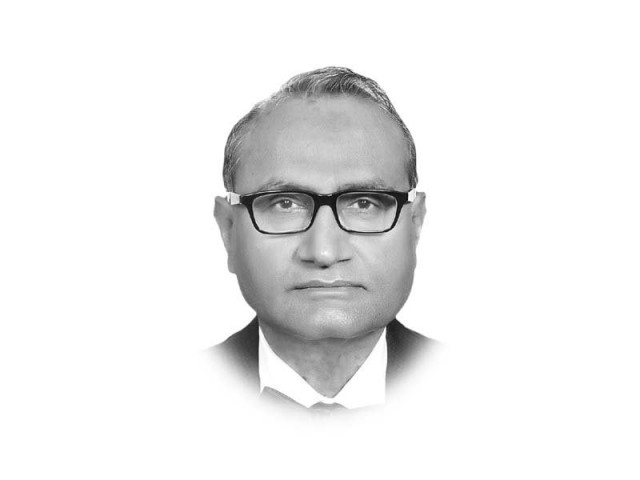Trump’s trade war
'Everybody loses in a protracted trade war'

pervez.tahir@tribune.com.pk
Just when one had thought that the world had seen the last of the trade wars of the interwar years, comes Trump brandishing the sword of America First. Trade is no more a means to achieve peace and stability in the world. Bilateralism to wrench out trade concessions is signalling the end of the hard-won rules-based global system. The EU, Canada, Mexico and China have all made it clear that there will be retaliation. What does that mean for the world order?
There is a role reversal. As the postwar champion of free trade, the US is now turning protectionist and China, the erstwhile closed economy, is the advocate in chief of an open trading system. Championing free trade does not mean a textbook belief in its ideology. Realpolitik has played a greater role in the trade negotiations, with the key consideration that trade promotes peace. According to the theory of international trade, free trade maximises consumer welfare. As producers are more organised than consumers, realpolitik was biased towards maximising their interests until 1930s, when exporters’ interests were brought in by reciprocal trade agreements. This was followed by multilateral tariff reductions under GATT and dispute resolution under WTO. There were four exceptions — market disruption, national security, unfair practices and dumping — allowing temporary escape from the rules.
The US claims that this system has broken down. Key players are not reciprocating to what it claims to be the lowest average tariff in the world. Past presidents ignored the problem, leading to an unmanageable trade balance. Industry closed down, jobs disappeared and growth suffered. The latest reduction in the unemployment rate was tweeted by Trump himself in breach of rules protecting the integrity of the data system, only to give the impression that the tariff belligerence was already paying dividends. A closer look only confirms the increasing employment trend since the Obama period, with an insignificant bearing of an odd new aluminum mill in Kentucky or a steel mill in Oklahoma.
The World Bank estimates that an escalation of tariffs to the maximum permissible level by WTO would reduce world trade by 9 per cent. The Trump threats go well beyond, affecting $450 billion trade. It could, according to the IMF, upset the strong upswing in the global economy, as “Everybody loses in a protracted trade war.” Developing countries like Pakistan will lose disproportionately more. It is not yet certain whether it is a cold or hot trade war. With Trump as the helmsman, anything goes. In the White House briefing before the G7 summit, he was described as the strongest trade reformer in the past 25 years. He has freed what Keynes called the “animal spirit” of entrepreneurship within the United States and is working to fix the “ineffectual” world system.
Published in The Express Tribune, June 8th, 2018.
Like Opinion & Editorial on Facebook, follow @ETOpEd on Twitter to receive all updates on all our daily pieces.














COMMENTS
Comments are moderated and generally will be posted if they are on-topic and not abusive.
For more information, please see our Comments FAQ